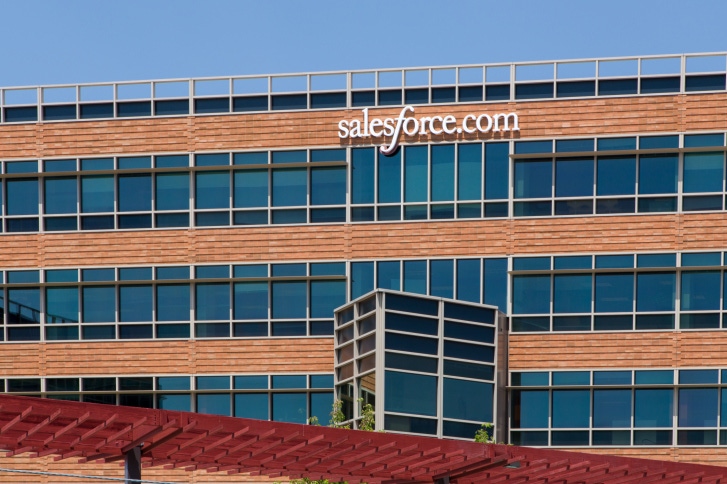Some question if the CRM giant might have overpaid for the E-commerce platform vendor, even as investors appear to be taking the purchase in stride.
June 1, 2016

(Bloomberg) — Salesforce.com almost never turns a profit, and pays rich prices for acquisitions. Investors love it, but can the romance last?
Shareholders of the cloud-software company were largely unruffled Wednesday as Salesforce announced its latest pricey purchase, the $2.8 billion takeover of Demandware. Salesforce is paying about 11 times Demandware’s revenue in the past year — more than double the median multiple offered in similar transactions over the last decade. That makes the acquisition more expensive than fondly remembered takeovers like Hewlett-Packard’s writedown-riddled purchase of Autonomy.
Perhaps shareholders are just used to it. Salesforce isn’t exactly known for bargain hunting. Its 2014 purchase of RelateIQ for $390 million valued the big-data company at around 70 times its annual recurring revenue of reportedly less than $5 million. In 2012, Salesforce shelled out more than 20 times Buddy Media’s revenue for the social-media marketing company.
The Demandware deal follows Salesforce’s clever but expensive formula for software success: Buy fast-growing companies that have the dual benefit of propping up Salesforce’s growth rate and opening new business lines. So far it’s worked, and believers in Salesforce’s strategy have been richly rewarded. The company’s stock trades at about 30 times its IPO price from 2004. Shares of Google’s parent company, which went public the same summer as Salesforce, are trading at 18 times the company’s IPO price. (Both figures are adjusted for splits.)
The closest precursor to the Demandware deal was Salesforce’s $2.5 billion purchase of ExactTarget, announced in June 2013. That takeover didn’t earn much applause at first because ExactTarget was pricey as well, although significantly cheaper than Demandware at closer to 8 times trailing 12-month sales.
The deal helped Salesforce start a new “marketing cloud” business to capitalize on advertisers’ increasing reliance on technology to personalize their pitches, keep tabs on social-media messages and analyze how well their ad dollars translate into sales. Salesforce stock has since doubled and the marketing cloud comprises one of the faster-growing parts of the company.
It’s not like Salesforce is paying big bucks for nothing in this latest M&A foray. Cloud-commerce software maker Demandware is no dinosaur, with revenue projected to grow by an average of 27 percent in each of the next four years. That’s better than what analysts were anticipating for ExactTarget at the time it was acquired. Salesforce really has no choice but to buy its way to growth as the widespread prevalence of its core customer-relationship management software starts to catch up with it and sales don’t balloon quite like they used to. At Salesforce, everything the company does is to maximize growth.
But Demandware is also not growing as fast as it was in its heyday two years ago, or even last year. That makes the lofty price tag slightly more suspect. At $75 a share, Salesforce is offering 71 percent more than Demandware’s average trading price recently — the richest premium for a major software deal since 2007. Salesforce CEO Marc Benioff told CNBC Wednesday the deal was “very competitive,” which may help to explain the high price.
One problem with Salesforce’s acquisition-reliant strategy to push into new business lines: The company pays richly because it’s in catch-up mode. Before Salesforce bought ExactTarget, Oracle and startups like Marketo had already started to sell Salesforce-like technology to marketing departments. In Demandware’s technology area of e-commerce software, Salesforce’s bigger rivals already have done their shopping. SAP bought Ariba in 2012 for $4.3 billion and Oracle bought Micros two years ago for $4.6 billion.
At what point will Salesforce’s expensive tastes sour?
This column does not necessarily reflect the opinion of Bloomberg LP and its owners.
To contact the authors of this story: Brooke Sutherland in New York at [email protected], Shira Ovide in New York at [email protected].
You May Also Like
